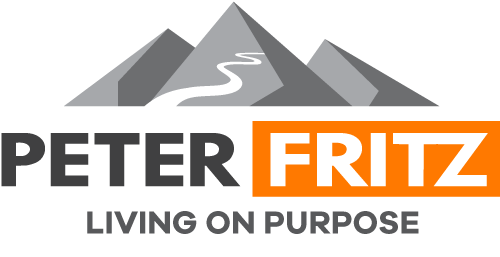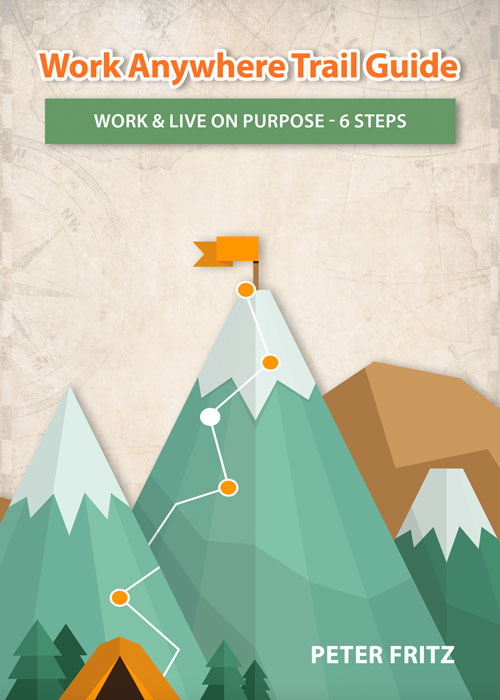You’re going to die one day; perhaps quite soon. Maybe even this year. And when that day comes and you’re laying in hospital under sheets that smell of bleach, I promise you that all the distractions you’ve indulged and the things you’ve accumulated will mean exactly nought.
In Bronnie Ware’s beautiful book, The Top Five Regrets of the Dying, she illustrates our folly in vivid detail, and worse, the consistency of our experience. Sadly, most of us don’t acknowledge our errors until our last days, when they rush forth in a wave of clarity and regret.
Most of us live in ‘someday’ mode. I know I’m guilty of it. Someday I’ll prioritise my life and get everything in order. I’ll allocate more time to appreciate life and smell the roses. Someday I’ll work less and travel more. Someday I’ll live in the present again like I did when I was twelve.
We need to keep reminding ourselves that someday the music will stop. The question is, will the music still be in you when that happens?
Like me, you’re probably doing too much of the wrong work and wasting too much money on the wrong things. This ‘busy work’ we do doesn’t make our lives more important, and most of the stuff we buy doesn’t bring lasting pleasure.
A lot of what we do feels important, but it isn’t.
Here’s how I look at it. Before you can live, you must first remove what’s killing you – the habits, practices and especially the people who consume your bandwidth and your precious time. For example, if the work you’re doing each day doesn’t bring you closer to your true purpose; if it doesn’t align with who you want to be, then you’re squandering time.
 If your career keeps pulling you further away from the things you value most (e.g. your family, freedom, peace of mind, your health or your natural talents and passions), you’re being reckless with your one shot as a human on this planet.
If your career keeps pulling you further away from the things you value most (e.g. your family, freedom, peace of mind, your health or your natural talents and passions), you’re being reckless with your one shot as a human on this planet.
Objections to this come easily, I know, but just because something is necessary right at this moment doesn’t mean it’s important. Plenty of things we do are necessary to achieve a specific result. The question is, ‘Is the result itself actually important?’
Likewise, there will always be tasks that feel mundane, repetitive and thankless. However, if they move the needle on a result that matters, they are, by extension, important. Even doing something you love; when done long enough, becomes a job. But when the mundane, thankless tasks are an essential part of your ‘important’ work, you usually don’t resent them. You embrace them like the kale and silverbeet in your morning smoothie.
Maybe Steve Jobs said it better: “If today were the last day of my life, would I want to do what I’m about to do today?”
What’s stopping you?
Finding your purpose and the work to go along with it is a big topic, so I’m not going to cover it here. Instead, I’d like to offer you a short list of culprits that probably consume too much of your time and therefore, your life. Each of these can take an incredible hold over you and your capacity to step back, assess your life and blaze your own trail. I recommend simplifying or culling as many as you can.
- Never leave email running in the background. Switch off the alerts and if possible, remove it from your phone. How productive do you think you’d be if someone tapped you on the shoulder every few minutes or went “bing!” in your ear? Turn it off. The world won’t end. You’ll get a lot more done, you’ll do it faster and it’ll be of higher quality, too.
- Never check your email first thing in the morning. Instead, decide the day before what your most important tasks are and spend at least 2-3 hours on the first one before you check your email.
- Never check your email just before you finish your work. The tension and nervous back-of-mind distraction it creates will impact your evening and possibly, the quality of your sleep.
- Limit yourself to somewhere between two and four checks a day. I check my email mid-morning, mid-afternoon and no less than an hour before finishing for the day.
- Stay away from email on the weekends unless absolutely necessary.
Vexatious Pain-in-the-Arse Clients
The 80/20 rule is probably relevant here – I don’t know, but I’ll use it anyway. Twenty percent of your clients probably comprise eighty percent of your income. For me, it’s about thirty/seventy. Focus on them. Delight them at every turn and show them how important they are. Sometimes the best thing you can say to someone (clients especially) is “no.” We spend so much of our time at work, the least we can do is use the time efficiently, effectively and with people who actually make our work enjoyable.
Focus on those who respect your work and are happy to pay for your talents; then recommend an alternative person or business to serve the remainder. You’ll sleep better; you’ll enjoy your work more and you’ll deliver better results for those you serve. In all likelihood, you’ll end up earning a lot more too, because those 20-percenters will refer others to you who are just like them. For more on this, read Mike Michalowicz’s brilliant book, The Pumpkin Plan.
Television and iDevices
The average Australian watches over three hours of TV a day. Americans watch over five hours a day. That’s nine years of TV in their lifetime. Pay TV has seen rapid growth over the last few years, but iDevice content consumption has outgrown pay TV by a significant margin. Here are some sobering stats from YouTube.
- YouTube has over 1.3 billion users – about one-third of all people on the Internet.
- YouTube overall and even YouTube on mobile alone reaches more 18-49 year-olds than any cable network in the U.S.
- Growth in watch time on YouTube is up at least 50% year on year for three straight years.
- The number of people watching YouTube per day is up 40% year on year since March 2014.
We’re passive, lazy content consumers and the cost is an order of magnitude greater than the cost of a streaming service or Internet plan. It’s time. Don’t waste it staring at a screen. DO something.
Consumerism
If you had to leave your city or town tonight and never return, what would you take with you? Just a handful of items would make the cut, wouldn’t they?
I sometimes fantasize about coming home to find it burned to the ground. It would be inconvenient, yes. But it would also be liberating.
Starting with a clean slate; devoid of the crap I’ve accumulated all these years would be incredible. Sure, I’d miss a few irreplaceable objects but so long as my family was safe, the other things could live in my memories.
The things we don’t actively use and the things that don’t contribute true pleasure eventually own us. They become a subtle intrusion into our subconscious. That’s why spring cleaning and purging unwanted goods are such satisfying exercises; they lighten the psychological load.
Habitual consumption of consumer products won’t make you happy or successful. To purge and simplify is the high road to wealth and enlightenment. The alternative is to amuse yourself to death.
Listen to Roger Waters’ song, Amused to Death, and you’ll understand what I’m on about. Indulgences like fashion, fancy toys and expensive dinners all conspire to keep you on the endless treadmill of working to consume.
Identify and remove ‘bad’ people.
This is touchy because many of us didn’t choose our friends. More often than not, we acquired them through circumstance; people we meet through a common interest, activity or third party.
But if you acknowledge that you’re the average of the five people you spend the most time with, it’s incumbent on you to be vigilant about who’s setting your preferences, beliefs and habits.
The same goes for family members, well-intentioned as they might be. If you want to spring clean your life, you need to examine your influencers because whether you realise it or not, they’re impacting the expectations you set for yourself, the beliefs you hold and the decisions you make.
Less crap pays you twice.
Eliminating the crap in your life – the things that rob you of your time and your hard-earned money – rewards you on two fronts.
You have more time to enjoy your life now and all the things that truly matter, plus you have more money to put into things that will enrich your life later.
I advocate learning how to invest wisely. Invest your time in your family and your heartfelt passions and invest your money in growth assets that can deliver peace of mind now and into the future.
It isn’t rocket science, but the second part does require education. It’s never something you should leave solely to others; no one cares more about your financial future than you.
There are many brilliant educators on money, but please remember, it’s a lot simpler than many want you to believe. We like to think it’s complicated because that helps us feel less stupid about how broke we are. Listed below are four books that’ll teach you how to get out of debt, invest safely in stocks and real estate and get rich the right way. If you read all four (and apply the tactics most relevant to you), you’ll wind up better off than 99% of your friends.
- Debt Free in 3 Simple Steps
- The Barefoot Investor
- Unshakable: Your Financial Freedom Playbook
- Michael Yardney’s Guide to Getting Rich
Take the time to learn what you need to know. Step forward methodically as a student of the subject and reap the benefits for yourself.
Your life is happening right now; it won’t begin at some point in the future. The best time to plant a tree is 10 years ago. The second best time is today. Resolve to remove what’s killing you, and set out on a new path towards the life you seek. The mountaintop is far less crowded than the valley below and the view is much better too.
![]() .
.
PS. The girl in this post is my wife, Yingying – a person who’s mastered the art of simple living. I took this photo on our recent visit to Sydney during the Australia Day celebrations.
[ss_click_to_tweet tweet=”If today were the last day of my life, would I want to do what I’m about to do today? ~ Steve Jobs” content=”If today were the last day of my life, would I want to do what I’m about to do today? ~ Steve Jobs” style=”5″ link=”1″ via=”1″]
Disclaimer: I’m not a psychologist and I’m not a financial advisor’s elbow. This material doesn’t constitute financial advice but rather a collection of opinions based on personal experience.
Affiliate Notice: If I recommend something to you (e.g. a book, software, a physical product, etc.), it’s because I’ve bought it, used it and benefitted from it. Yes, I might get a small affiliate commission if you buy it, but it won’t cost you any extra. Besides, you don’t have to buy it through me, and if you don’t think it’ll help you, then don’t buy it from anywhere.
The Ultimate Goal – A Dedication to Jon James
Yesterday, a giant in my life called up to offer his final farewell. Today, he married his true love, Aurelia, before entering palliative care. He’s only 64, he’s athletic, and he's stronger than most 30-year-olds. But when cancer takes hold, it doesn’t care. Jonathon...
What are the first steps to starting a side business that makes you money?
[fusebox_track_player url="https://www.buzzsprout.com/1079927/5461972-what-are-the-first-steps-to-starting-a-side-business-ep-115.mp3?blob_id=22247092&download=true" title="What are the first steps to starting a side-business? - EP 115" social_linkedin="true"...
The purpose of purpose
[fusebox_track_player url="https://www.buzzsprout.com/1079927/5195959-the-purpose-of-purpose-ep-114.mp3?blob_id=20946406&download=true" title="The Purpose of Purpose - EP 114" social_linkedin="true" social_email="true" ]Recorded with SquadCastSubscribe: iTunes |...
Download the Guide





